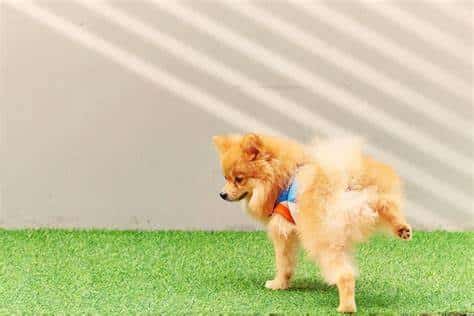How To Deal With Pet Odors While Having Artificial Grass In Lemon Grove?
 Artificial grass has become increasingly popular among pet owners due to its low maintenance, durability, and aesthetic appeal. However, one common concern for pet owners is dealing with pet odors that may linger on artificial turf. Fortunately, there are several effective strategies to manage and eliminate these odors, ensuring a clean and fresh outdoor environment for both you and your furry friend. Here are five tips to help you tackle pet odors while enjoying the benefits of artificial grass:
Artificial grass has become increasingly popular among pet owners due to its low maintenance, durability, and aesthetic appeal. However, one common concern for pet owners is dealing with pet odors that may linger on artificial turf. Fortunately, there are several effective strategies to manage and eliminate these odors, ensuring a clean and fresh outdoor environment for both you and your furry friend. Here are five tips to help you tackle pet odors while enjoying the benefits of artificial grass:
- Establishing a consistent cleaning routine is essential for keeping pet odors at bay. Remove solid waste promptly using a scooper or plastic bag to prevent odor buildup. For urine spots, rinse the affected area with water to dilute the odor and prevent it from seeping into the turf fibers. Use a mild detergent or specialized pet odor neutralizer to clean the surface thoroughly. Regularly brushing the artificial grass will also help distribute any trapped odors and maintain its appearance.
- Invest in artificial grass deodorizers specifically formulated to neutralize pet odors. These products contain enzymatic cleaners that break down organic matter, effectively eliminating odors at their source. Simply spray or sprinkle the deodorizer onto the affected areas and allow it to penetrate the turf fibers. Follow the manufacturer’s instructions for optimal results. Using deodorizers regularly can help maintain a fresh-smelling outdoor space for you and your pets to enjoy.
- Choosing the right type of infill for your artificial grass can make a significant difference in managing pet odors. Consider opting for pet-friendly infill materials such as silica sand or zeolite, which have natural odor-absorbing properties. These infill options help minimize odor retention and provide a cleaner and more hygienic surface for your pets. Additionally, they contribute to better drainage, preventing urine from pooling on the turf and causing unpleasant smells.
- Proper ventilation and sunlight exposure can help reduce moisture buildup and inhibit the growth of odor-causing bacteria on artificial grass. Trim surrounding vegetation to allow for better air circulation and sunlight penetration. If possible, install fans or vents in areas with limited airflow to promote drying and prevent odor accumulation. Regularly exposing the turf to sunlight will also help naturally disinfect and deodorize the surface, keeping it fresh and odor-free.
- Periodic professional maintenance and deep cleaning are recommended to ensure thorough odor removal and prolong the lifespan of your artificial grass. Hire experienced professionals who specialize in artificial turf maintenance to perform deep cleaning procedures such as power brushing, steam cleaning, or disinfection treatments. These intensive cleaning methods can effectively eliminate embedded odors, bacteria, and allergens, restoring the freshness and vibrancy of your artificial grass.
FAQs
Can Artificial Grass Attract More Pet Odors Compared To Natural Grass?
No, artificial grass doesn’t inherently attract more pet odors. However, improper maintenance or infrequent cleaning can lead to odor buildup over time. By following proper cleaning routines and using odor-neutralizing products, you can effectively manage pet odors on artificial turf.
Are There Any Health Risks Associated With Using Artificial Grass And Pet Odor Neutralizers?
Generally, artificial grass and pet odor neutralizers are safe for pets and humans when used as directed. However, it’s essential to choose high-quality products that are specifically designed for use around pets. Avoid using harsh chemicals or pesticides that may pose health risks to your pets or the environment.
How Often Should I Deep Clean My Artificial Grass To Eliminate Pet Odors?
The frequency of deep cleaning depends on various factors such as pet activity, weather conditions, and the level of odor accumulation. As a general guideline, aim to deep clean your artificial grass at least once or twice a year, or as needed based on odor intensity and visible stains.
Conclusion
In conclusion, managing pet odors on artificial grass requires a proactive approach and consistent maintenance. By implementing these five tips and addressing common concerns through proper care and attention, you can create a clean and odor-free outdoor environment that both you and your pets can enjoy year-round. For more information, contact Artificial Grass Lemon Grove at (619) 754-9700.

